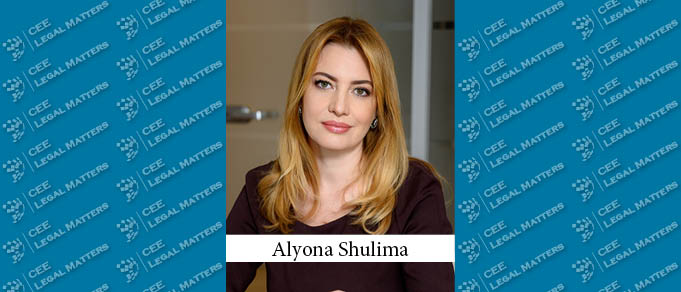While mineral extraction in Ukraine has a high potential for development and attracting investment, it always entails ecological risks which must be properly mitigated. Recently adopted laws, as well as legislation currently considered by Parliament, are aimed at balancing economic development and environmental protection.
Stimulating investment into extractive industries
The government is undertaking steps, on both a legislative and a technical level, to attract additional investment. In terms of legislation, large investment projects in extractive industries are now eligible for state support under Ukrainian Law 1116-IX On state support of investment projects with significant investments, with certain exceptions and caveats for coal, gas, and oil. Even though not all incentives prescribed by the law are available to extraction projects – extractive companies are not eligible for CIT exemption, and iron ore extraction projects cannot use budget funds to build supporting infrastructure – this is nevertheless an important win for investors in the industry, as initially those projects were not eligible for state support at all. On a technical level, the government made further efforts in promoting Ukraine’s potential. The State Geology Service of Ukraine played a crucial role in this process, being proactive in spreading information on available mineral deposits, digitalizing its services, and holding regular auctions of special permits for subsoil use.
Streamlining of subsoil use regulation
During the last year, several steps were taken to streamline the procedures necessary to start extractive industries operations. Access to state-owned primary geological information was unblocked, and it is now available free of charge. Easier access to previously restricted geological information regarding deposits of certain minerals has also been on the state agenda, according to recent Presidential Decree 122/2021. This mainly concerns releasing information on balance reserves of precious metals, non-ferrous ores, and rare earths.
The Parliament has recently adopted Law 1423-IX On Amendments to the Land Code of Ukraine and Other Legislative Acts to Improve the Management and Deregulation System in the Sphere of Land Relations, ensuring land purchase priority for subsoil users, for the area corresponding to a valid special permit for the extraction of certain minerals of national importance. These include non-ferrous metals, precious metals, rare metal ore and rare earth metals, radioactive metals, and raw materials for electronic and radio devices. Such amendments are especially important as the Ukrainian land market opens on July 1, 2021.
In terms of prospective legislation, we may expect a major reform of the general legislative framework for subsoil use in the nearest future. Firstly, through enactment of Draft Law 4187, which includes rather complex innovations: integrated permits for geosynoptics and extraction, liberalization of special permit issuance, and ensuring transparency of procedures for obtaining permits. Secondly, through the adoption of a new Subsoil Code of Ukraine, codifying all legislation in the subsoil sphere. The Ministry of Ecology and Natural Resources is currently advocating this reform.
Ecology matters
While extraction industries are important for economic development, they are always associated with risks for the environment. That is why it is important to keep an eye on current legislative initiatives in the ecological sphere now being considered by Parliament. Among those relevant to extractive industries, the most important draft laws are the following: 4167 On control over industrial emissions, aiming to implement Directive 2010/75/EU of the European Parliament and of the Council of 24 November 2010 on industrial emissions (integrated pollution prevention and control); 3091 on State Ecology Control, aiming to relaunch the mechanisms of eco-control; 4461 On the territory of Emerald network, aiming to implement the Bern Convention on the Conservation of European Wildlife and Natural Habitats, Directive 2009/147/EC, and Directive 92/43/EC. Understanding the importance of sustainability, it is now crucial to ensure a balance between economic development and ecology, based on the EU’s experience and best practices.
Overall, Ukraine’s legislation on extractive issues will be on the Parliamentary agenda for the coming year, regarding both subsoil and ecological aspects. State support of projects with significant investments in extractive industries, streamlined legislation on geo-prospecting and extraction, solved land access blockages, as well as implementation of international ecological standards, will increase Ukraine’s attractiveness for new investment in this sphere.
By Alyona Shulima, Associate Partner, Hillmont Partners
This Article was originally published in Issue 8.6 of the CEE Legal Matters Magazine. If you would like to receive a hard copy of the magazine, you can subscribe here.
